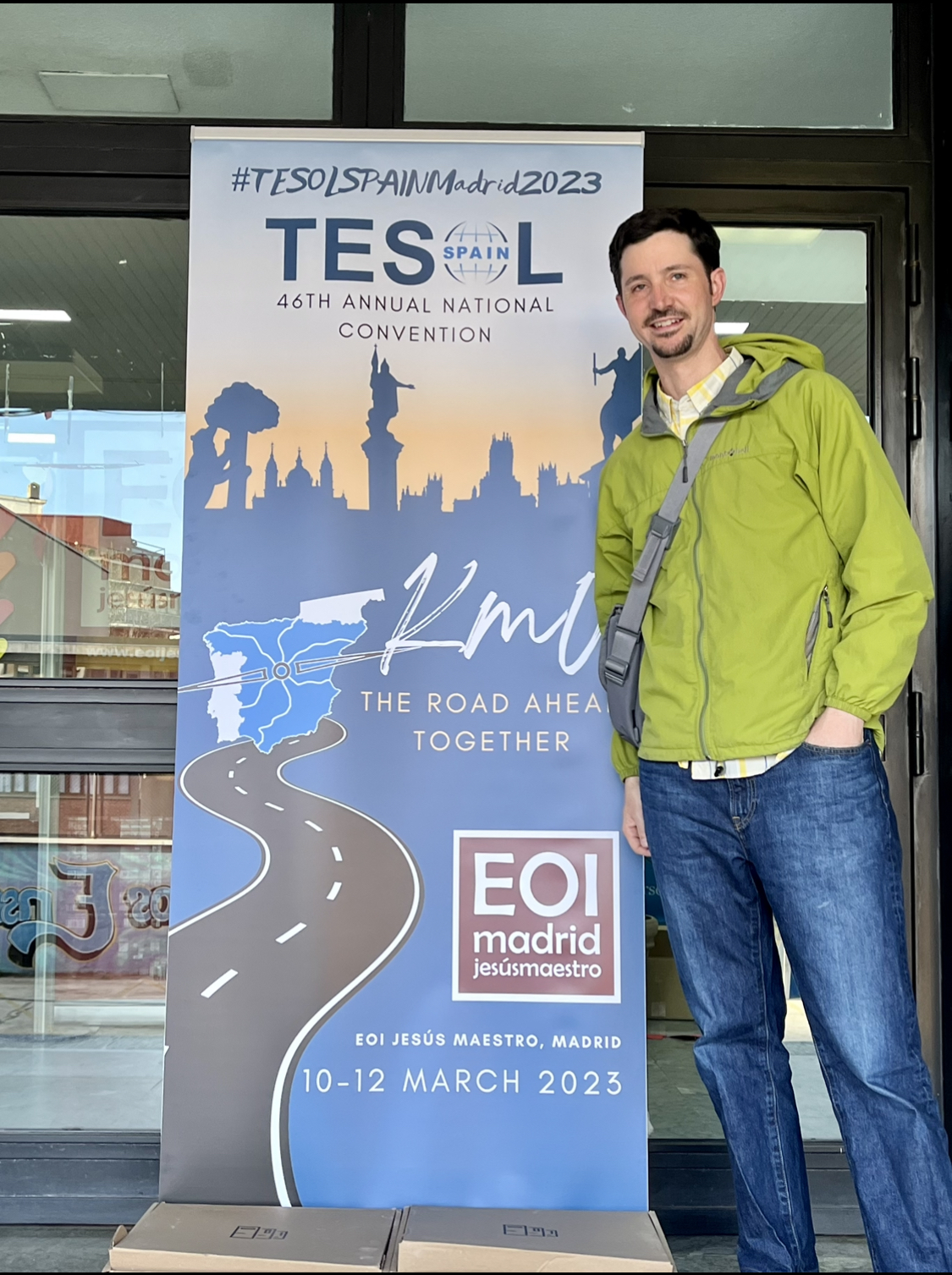ALE Paul Marlowe of the School of Policy Studies Gives Presentation on L2 Writing Development through Timed Writing Practice at SpainTESOL International Conference
2023.03.24
学会 Academic Conference
学会出張 Business Trip
ALE Paul Marlowe of the School of Policy Studies gave a presentation with Mayumi Asaba of the Faculty of Foreign Languages at Kyoto Sangyo University on L2 Writing Development through Timed Writing Practice at SpainTESOL International Conference, which was held from March 11th to March 13 in Madrid, Spain. SpainTESOL is attended by a wide variety of EFL professionals. There are teachers from infant, primary, and secondary schools, from E.O.I.s, universities, technical schools and academies, as well as teacher trainers, material writers and course planners. Publishers, ELT researchers, members of testing boards and national and international authors also take part in the Convention. The Convention offers participants a broad range of presentations by national and international speakers, including plenary and keynote presentatons, papers, workshops, theatre performances, round tables and product presentations. There are over 100 presentations on a wide variety of topics which are linked by the annual theme. Researchers from many countries exchanged ideas and well-known researchers were invited to introduce leading research.
Contents of the Presentation:
The presenters shared the results of a mixed-methods study investigating the effects of different types of writing practice on the development of complexity, accuracy, and fluency (CAF) in the writing of 43 lower-intermediate Japanese university students. Three groups who completed regular practice in either sentence-combining, translation, or timed writing for 15 weeks were compared on measures of CAF. The researchers shared the overall results of the study, but focused particularly on the results of the timed-writing group, who made significant gains across time compared to other groups in the study on the measure of fluency. Furthermore, qualitative data from interviews with two learners in the timed-writing group was shared with the audience in order to illuminate why timed-writing was a more engaging and effectivet ask for learners. The findings included ideas learners shared related to strategies they employed while performing the task, the perceptions they had of how the task influenced their writing, and how they believed the effect of practicing timed-writing transferred to other areas of their language learning. Finally, pedagogical implications were provided for L2 writing instructors with specific implications for teachers wanting to maximize the effect of timed-writing as a regular writing activity in the classroom.
Contents of the Presentation:
The presenters shared the results of a mixed-methods study investigating the effects of different types of writing practice on the development of complexity, accuracy, and fluency (CAF) in the writing of 43 lower-intermediate Japanese university students. Three groups who completed regular practice in either sentence-combining, translation, or timed writing for 15 weeks were compared on measures of CAF. The researchers shared the overall results of the study, but focused particularly on the results of the timed-writing group, who made significant gains across time compared to other groups in the study on the measure of fluency. Furthermore, qualitative data from interviews with two learners in the timed-writing group was shared with the audience in order to illuminate why timed-writing was a more engaging and effectivet ask for learners. The findings included ideas learners shared related to strategies they employed while performing the task, the perceptions they had of how the task influenced their writing, and how they believed the effect of practicing timed-writing transferred to other areas of their language learning. Finally, pedagogical implications were provided for L2 writing instructors with specific implications for teachers wanting to maximize the effect of timed-writing as a regular writing activity in the classroom.


back
